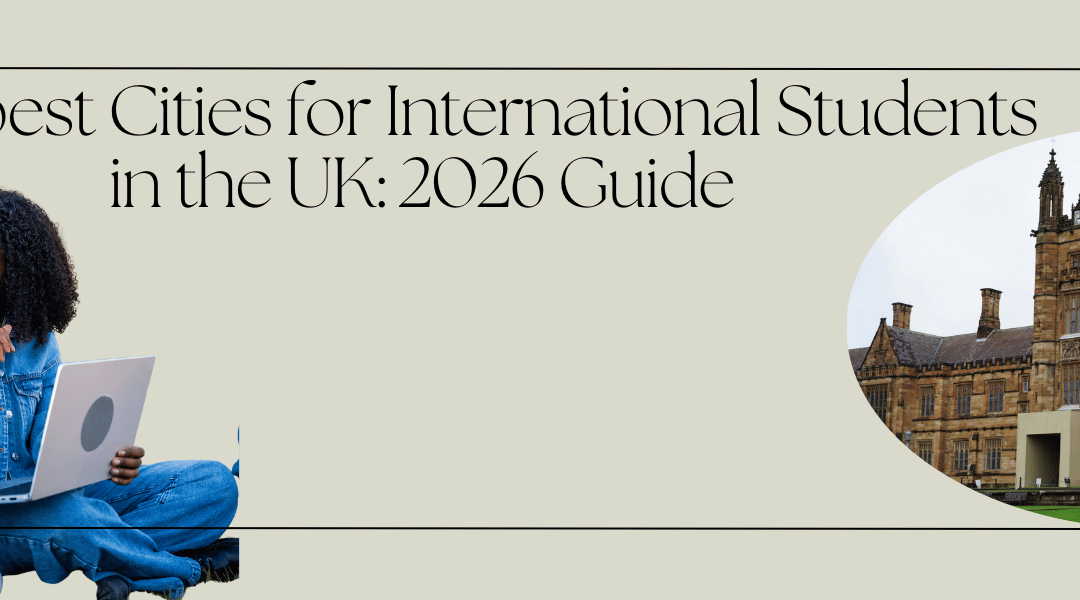In the era of big data, information is the new oil. From predicting consumer behavior to revolutionizing healthcare, data science is the engine driving the modern global economy. If you are looking to kickstart a career in this high-growth field, there is no better destination than the United Kingdom. At…

Masters of Data Science in the UK: Unlock Your Future in the Data-Driven World
In the era of big data, information is the new oil. From predicting consumer behavior to revolutionizing healthcare, data science is the engine driving the modern global economy. If you are looking to kickstart a career in this high-growth field, there is no better destination than the United Kingdom.
At Martiza Overseas, a leading overseas education consultancy, we help students navigate the complexities of international admissions. In this guide, we dive deep into everything you need to know about pursuing a Masters in Data Science in the UK.
Why Study in the UK for Data Science?
When you choose to study in the UK, you are choosing world-class academic excellence. The UK is home to some of the world’s oldest and most prestigious universities, offering cutting-edge research facilities and strong industry links with tech giants like Google, Amazon, and DeepMind.
The UK offers a unique blend of academic excellence, innovative research, and a thriving job market. Here’s why it stands out:
1. Global Reputation: UK universities consistently rank among the best in the world, offering cutting-edge curricula.
2. Industry-Relevant Skills: Programs are designed with input from industry leaders, ensuring you graduate with skills employers are looking for.
3. Post-Study Work Visa: International graduates can apply for a 2-year Graduate visa, allowing you to gain valuable work experience.
4. Diverse Culture: Experience a vibrant, multicultural environment that enriches your academic and personal life.
What is a Master’s in Data Science Course Like?
A Master’s in Data Science (MSc Data Science) typically covers a blend of computer science, statistics, mathematics, and business acumen. You’ll delve deep into:
-
Programming Languages: Python, R (essential for data manipulation and analysis).
-
Machine Learning: Supervised, unsupervised learning, deep learning, neural networks.
-
Statistical Modelling: Regression, classification, hypothesis testing.
-
Big Data Technologies: Hadoop, Spark.
-
Data Visualisation: Tools like Tableau, Power BI.
-
Database Management: SQL, NoSQL.
-
Ethics in AI and Data: Understanding responsible data practices.
Many programs also include a significant dissertation or capstone project, allowing you to apply your learned skills to a real-world problem or research question.
Top Universities Offering MSc Data Science in the UK
The UK boasts numerous universities renowned for their Data Science programs. Here are some of the highly-regarded institutions (note: entry requirements and specific course modules can vary):
-
University of Manchester: Known for strong research and industry links.
-
University of Edinburgh: Offers a highly quantitative and research-focused program.
-
University College London (UCL): Excellent for interdisciplinary studies and located in a global tech hub.
-
Imperial College London: Strong in STEM fields, with rigorous data science programs.
-
King’s College London: Good for applications in health and social sciences data.
-
University of Warwick: Excellent for statistical and mathematical foundations.
-
University of Glasgow: Offers flexible modules and strong practical focus.
-
University of Bristol: Growing reputation for data science and AI.
(This is not an exhaustive list. Our advisors at Martiza can help you find the best fit for your profile and career aspirations!)
Course Duration & Structure
Most full-time MSc Data Science programs in the UK are 1 year in duration. Part-time options may also be available, extending to 2-3 years.
The structure typically includes:
-
Taught Modules: Covering core concepts and advanced topics.
-
Practical Labs: Hands-on experience with tools and datasets.
-
Group Projects: Developing teamwork and problem-solving skills.
-
Dissertation/Research Project: An independent research piece, often industry-linked.
Course Fees & Funding
Tuition fees for international students for an MSc in Data Science in the UK can range from £20,000 to £40,000 per year, depending on the university’s ranking and location.
Additional Costs to Consider:
-
Living expenses (accommodation, food, transport): £12,000 – £15,000 per year (outside London), £15,000 – £18,000+ (London).
-
Visa application fees.
-
Health surcharge (NHS).
Scholarship Opportunities: Many universities offer scholarships specifically for international students, including those pursuing Data Science. These can be merit-based, need-based, or specific to certain regions. Martiza can help you identify and apply for relevant scholarships to ease your financial burden.
After Your Study: Job Opportunities & Career Paths
Graduating with an MSc in Data Science from the UK opens a vast array of career opportunities across nearly every industry. The demand for skilled data professionals far outstrips supply, leading to excellent job prospects and competitive salaries.
Common Job Titles Include:
-
Data Scientist: Building predictive models and algorithms.
-
Machine Learning Engineer: Designing and deploying ML systems.
-
Data Analyst: Interpreting data to identify trends and insights.
-
Business Intelligence Analyst: Translating data into business strategies.
-
AI Developer: Working on artificial intelligence applications.
-
Research Scientist: In academia or R&D departments.
-
Big Data Engineer: Designing and maintaining data infrastructures.
Average Starting Salaries: For graduates with an MSc in Data Science, starting salaries in the UK typically range from £30,000 to £50,000 per annum, often increasing rapidly with experience. Experienced professionals can command significantly higher salaries.
The 2-Year Post-Study Work Visa: This visa is a game-changer! It allows you to stay and work in the UK for two years after graduation, providing invaluable international work experience and networking opportunities.
Entry Requirements
While specific requirements vary by university, generally you’ll need:
-
A strong undergraduate degree (2:1 or equivalent) in a quantitative subject like Computer Science, Mathematics, Statistics, Engineering, Physics, or a related field.
-
Proof of English Proficiency: IELTS Academic (typically 6.5-7.0 overall, with no band less than 6.0) or TOEFL equivalent. Alternative: MOI based (see below)
-
Statement of Purpose (SOP): A compelling essay outlining your motivations, academic background, and career goals.
-
Letters of Recommendation (LORs): Usually 2 academic references.
-
CV/Resume: Highlighting relevant experience or projects.
-
GRE (optional): Some universities may recommend or require it, but it’s less common for UK MSc programs.
Study in the UK without IELTS: MOI-Based Admissions
Many students ask our Overseas Education consultancy if they can apply without an IELTS score. The answer is YES. Several universities allow a Medium of Instruction (MOI) waiver if you can prove your entire degree was taught in English.
Highest Ranked Universities for MOI Admissions (Data Science)
While the “top-tier” (Russell Group) universities usually insist on IELTS, the following reputable universities are known for being the most flexible with MOI for Indian students:
University |
MOI Criteria for Indian Students |
|---|---|
| University of Portsmouth | Accepts MOI if you have 70% or above in 12th English or an official MOI letter from a recognized Indian university |
| University of East London (UEL) | Very high acceptance rate for MOI-based applications from reputable Indian institutions. |
| University of Hertfordshire | Regularly waives IELTS for students from English-medium backgrounds with an official certificate. |
| University of South Wales | Offers MOI waivers and is ranked as one of the best for student satisfaction and employability. |
| Heriot-Watt University | Considers MOI on a case-by-case basis; often requires a brief internal interview to confirm proficiency. |
| University of Greenwich | Accepts MOI for many of its postgraduate computing and data science tracks. |
Pro-Tip from Martiza: An MOI waiver is not just about the letter; universities often look at your Class 12th English marks. If you scored 70%–75%+ in English (CBSE/ICSE or certain State Boards), your chances of an IELTS waiver increase significantly.
How to get an MOI Waiver?
To apply through Martiza Overseas Education, you will need:
An Official MOI Letter from your college Registrar or Principal.
Your degree transcripts clearly stating the medium was English.
A strong Statement of Purpose (SOP) written in clear, professional English.
FAQs
1. Can I study Data Science in the UK if my bachelor’s was in a non-IT field?
Yes, many universities offer “Conversion Masters” in Data Science for students with a background in Business, Humanities, or Biology, provided they have a basic understanding of mathematics.
2. How long is the Masters program?
In the UK, most Masters in Data Science programs are 12 months long (full-time).
3. Is there a scholarship for international students?
Yes! Universities offer various merit-based scholarships ranging from £2,000 to 50% of the tuition fee. There are also prestigious schemes like the Chevening Scholarship.
4. What is the Stay-back period?
Under the current Graduate Route, you can stay in the UK for 2 years after completing your degree to look for work.
5. Is the UK good for Data Science compared to the USA?
The UK is often preferred because the courses are shorter (1 year vs. 2 years), making it more cost-effective while maintaining a similar standard of global prestige.
6. Why should I use an overseas education consultancy like Martiza Overseas?
We provide personalized counseling, help with university shortlisting, expert SOP editing, and end-to-end visa assistance to ensure your application is successful.
Ready to start your journey? Contact Martiza Overseas today for a free consultation and let us help you achieve your dream of a Masters in Data Science in the UK.
More From This Category
Studying in the UK is about more than just a world-class degree; for most Indian students, it’s about the career that follows. However, as the 2026 landscape becomes more competitive, the strategy for landing a job has shifted. At a recent webinar at Brunel University, experts shared the "ground reality"…
In 2026, the landscape for international students has shifted, but the desire to study in UK remains as strong as ever. If you are planning your relocation, you likely know that standard Master’s (Taught) students can no longer bring their families. However, the MRes (Master of Research) remains a powerful…
When you think of studying in Europe, countries like the UK, Germany, or France may instantly come to mind. But tucked away in the eastern Mediterranean is a destination that quietly blends history, academic quality, and affordability. Cyprus has been known since ancient times for its mineral wealth, vineyards, and…
New Zealand is rapidly becoming a leading choice for students looking to study abroad for their higher education. Renowned for its high-quality, internationally recognized education system, the country also provides valuable opportunities for both personal and professional development. New Zealand’s universities offer a range of degrees, including Bachelor’s, Master’s, and…
New Zealand stands out as a premier destination for education, boasting an exceptional education system, state-of-the-art teaching facilities, and top-notch research opportunities. With all its universities ranked among the top 3% globally, students have access to some of the finest academic options available. In recent years, an increasing number of…
In recent years, Data Science has emerged as a pivotal force driving innovation across the globe. By deriving significant insights from extensive datasets, this discipline is increasingly sought after in various sectors, including Technology, Finance, Health Care, and Marketing. Pursuing a Master's in Data Science in the UK could be…
Envision contributing to a technological transformation that is altering industries and shaping the future; this is the promise of a career in Artificial Intelligence (AI). With swift progress in machine learning, robotics, and data science, AI is driving innovations from autonomous vehicles to tailored healthcare solutions. For motivated students eager…
Asia is increasingly being recognized as a powerhouse in the global financial and economic landscape. Nations such as India, China, Japan, and the UAE are at the forefront of this transformation, a fact that is widely acknowledged around the world. In the past, many sought higher education and career prospects…
















